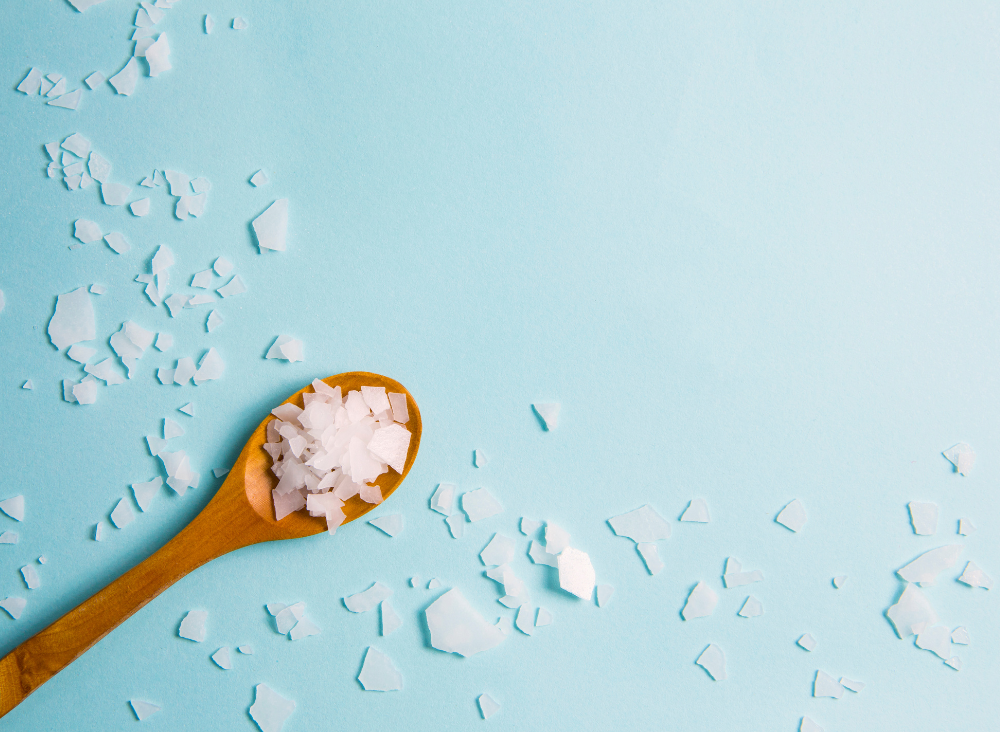
Magnesium Flakes vs Dead Sea Salt: Health Benefits of Both
The Dead Sea and magnesium flakes are both known for their beneficial properties, but they have some key differences:
- Source: The Dead Sea is a saltwater lake located between Jordan and Israel. It is known for its high mineral content, including magnesium. On the other hand, magnesium flakes are derived from magnesium chloride, a compound extracted from seawater or underground brine deposits.

- Mineral Content: The Dead Sea contains various minerals such as magnesium, potassium, calcium, and bromide. The magnesium content in the Dead Sea is naturally occurring. Magnesium flakes, on the other hand, are specifically created to provide a concentrated source of magnesium.
- Application: The Dead Sea is often visited for therapeutic purposes, as its high mineral content is believed to have positive effects on skin conditions, joint pain, and overall relaxation. People can immerse themselves in the Dead Sea or use its mud and salt for various cosmetic treatments. Magnesium flakes, are typically used for magnesium supplementation. They are dissolved in water and used for topical applications, such as baths or foot soaks, to promote relaxation, muscle recovery, and overall well-being.

- Concentration: The magnesium content in the Dead Sea is relatively low compared to the concentration found in magnesium flakes. Magnesium flakes are usually highly concentrated, providing a more potent source of magnesium for absorption through the skin.
- Availability: The Dead Sea is a natural resource that can only be accessed by physically visiting the region. Magnesium flakes, are commercially available and can be purchased online or at health stores, making them more accessible to a wider range
Share



